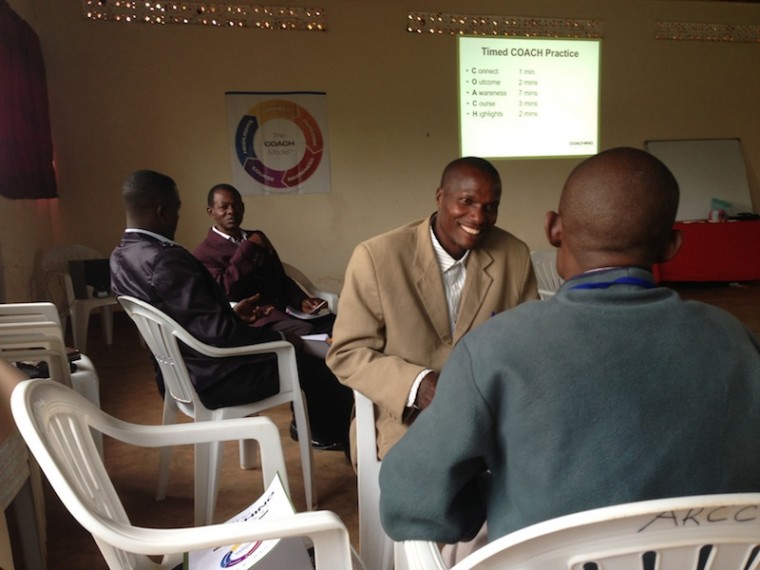Coaching can get very personal. In the process, you may even accidentally cause your coachee to lose “face.” Loss of face might be described as “being humiliated” or “disgraced.” Here’s how to overcome issues of face in coaching.

It’s easy to cause a person to lose face while coaching without even knowing it. If we are too direct, push for the person to take responsibility, or don’t show the respect that age and social status differences required, we could cause someone to lose face.
“I want to be able to ask better questions.” I hear this a lot from the leaders I train to coach others. 
Everyone is looking for magic questions that will create insight, foster innovation, and help people get things done.
There are no magic questions. But there are powerful questions!
Powerful questions are the tools to help people discover new roads and to find answers. Many people are not naturally reflective. We all have a limited perspective. Questions are powerful when they provoke reflection in other people, causing them to think more deeply and creatively than they could on their own.
I decided to list up 50 of my favorite powerful questions in a resource guide. It’s called 50 Powerful Coaching Questions. Each question approaches a problem or goal from a different perspective. Here are a few examples:
Does culture effect coaching? You bet it does! There are three common mistakes coaches from “the West” make when coaching across cultures. I’ll tell you what to do instead.

I’ve noticed that most coaching training originated from cultures that could be described as individualistic and egalitarian – countries like Australia, Britain, and the United States.
However, much of the world is group oriented and hierarchical in their cultural ways of behaving. The peoples of Arab-speaking countries, China, Greece, Indonesia, India, Japan, Mexico, Russia, Singapore, Turkey, West Africa, in fact, the majority of the world’s population follow these cultural tendencies.
For nearly 10 years I have taught the COACH Model to people around the world. None have been more receptive to it than this group of Ugandan ministers. Each has a rapidly expanding organization with a need to expand their pool of leaders. They immediately saw the how using The COACH Model will develop the leadership capacity of their workers, while getting the job done. One minister commented that leading with powerful questions better expresses his cultural values than does the usual command-and-control style.
If you are ready to expand your pool of leaders, contact me to equip your organization.
Are there basic differences in thought processes between the Chinese-Confucian societies of East Asia and Western societies? The author answers “yes” and makes a compelling case.
 This book’s subtitle is: How Asians and Westerners Think Differently…and Why. Nisbett’s thesis is that there is no universal human cognition – all cognition is culturally affected.
This book’s subtitle is: How Asians and Westerners Think Differently…and Why. Nisbett’s thesis is that there is no universal human cognition – all cognition is culturally affected.
Through the use of numerous psychological studies he shows a stark difference in the way Westerners and East Asians perceive, reason, and “see” the world. Nisbett begins by tracing the origins of Western and East Asian philosophy, science and society. On this foundation he builds a case that Western and East Asian cognition is very different.





 This book’s subtitle is: How Asians and Westerners Think Differently…and Why. Nisbett’s thesis is that there is no universal human cognition – all cognition is culturally affected.
This book’s subtitle is: How Asians and Westerners Think Differently…and Why. Nisbett’s thesis is that there is no universal human cognition – all cognition is culturally affected.